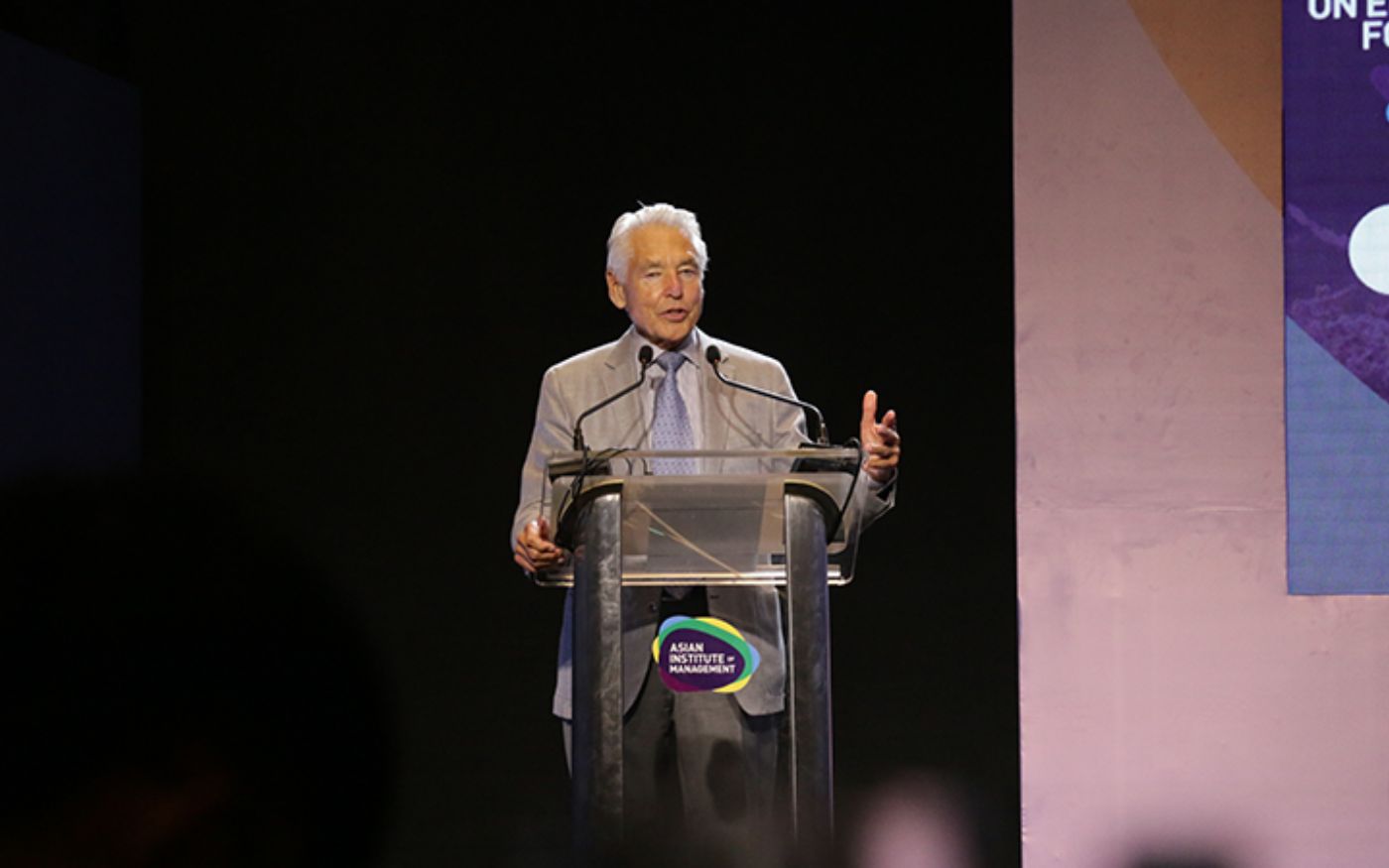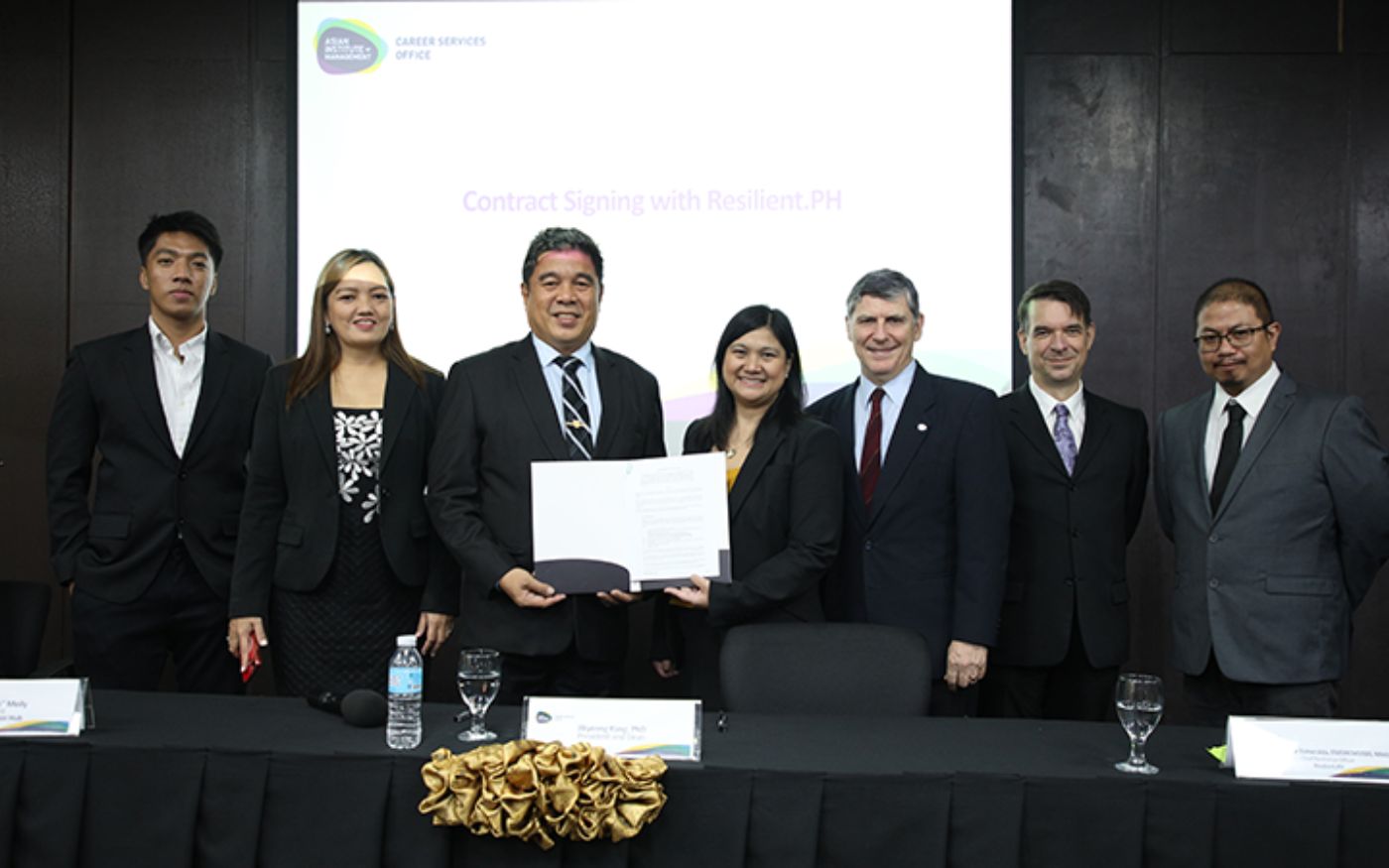The Makati City Local Government, in partnership with the Asian Institute of Management’s (AIM) School of Executive Education and Lifelong Learning (SEELL), sent eight delegates to Australia as part of Transforming the Futures of Peace and Order for the Local Government of Makati City. The custom program was created by SEELL in collaboration with the Makati City Local Government to develop future thinking skills and actionable projects as well as explore participant assumptions, map drivers of change, build scenarios, and back cast strategies.
Hon. Monique Lagdameo, Hon. Maria Concepcion Yabut, Hon. Armando Padilla, Dr. Merlina Panganiban, Dr. Katherina C. Mangahas, Atty. Neil-San Patag, Arleen Pangilinan, and Romulo Salgado Jr., along with AIM faculty, Prof. Shermon O. Cruz, and two SEELL facilitators, flew to Australia on 11 September, where they were greeted with local cultural activities and exposed to government practices of the city.
The group enjoyed tours and immersion activities that took them around Brisbane , visiting locations such as the Southbank Precinct, Central Business District, Sunshine Coast, and Mt. Coot-Tha overlooking the local suburbs.
<photo>
On the second day of the tour, the group attended a meeting with the Director of Climate Positive Brisbane 2032, Dr. Kimberly Camrass, and Managing Director of Engaging Futures, Dr. Colin Russo, where they discussed industry-related initiatives and frameworks that allow Brisbane to develop policies, strategies, and programs that achieve positive environmental, social, and governance-related outcomes. The group then held a brainstorming session with Drs. Camrass and Russo, developing strategies to address issues currently faced by Makati City.
<photos>
Day Three of the tour was spent visiting the offices of Comlink Australia, a bespoke support service provider that caters to elderly citizens so they can live independently within their communities. The group met with Comlink CEO and Managing Director, Liam Mayo, to discuss how Comlink successfully integrated future thinking processes into their work, allowing them to preempt the needs of their aging population and deliver quality services to their clients.
<photos>
At the tail-end of their journey, the group visited the Brisbane City Council where they were greeted by International Relations Lead, Garth Henderson. The group, along with their SEELL facilitators, introduced themselves and explained the purpose of the tour, conversing with Brisbane City Council officials about the city’s policing and public safety efforts. Among those discussed, Brisbane’s CitySafeCCTV, Rapid Response Group, and Traffic Response Unit projects stood out as especially noteworthy to the delegates. During the tour, the group was also invited to the Lord Mayor’s Multicultural Round Table, a private event where an independent advisory body provides business leaders, decision-makers, opinion leaders, and key stakeholders from Brisbane’s multicultural community an opportunity to discuss pressing issues that need to be addressed to promote the economic advancement of the city. They were warmly welcomed by the Lord Mayor of Brisbane, Adrian Schrinner, who encouraged the group to share in the insightful discussion held by prominent members of the community.
<photos>
As the tour neared its end, the delegates made a courtesy call to the Philippine Consulate in Queensland. Honorary Consul of the Philippines, Atty. Sheryll Gabutero, welcomed the delegation and discussed the city relations and concerns of the Filipino community in Australia.
<photos>
The delegates returned to the Philippines on 15 September 2023. Their fruitful tour is expected to positively impact Makati City as they present their insights, findings, and recommendations to Mayor Abby Binay and to the Institute this October.
This trip was not only a transformative experience for the eight delegates, but it also served as a testament to SEELL’s overarching goal. Through programs like these, SEELL strives to equip individuals with future thinking skills, increase their proficiency to develop actionable strategies, and give them the ability to engage in meaningful dialogues that can shape the future of their cities and organizations.





